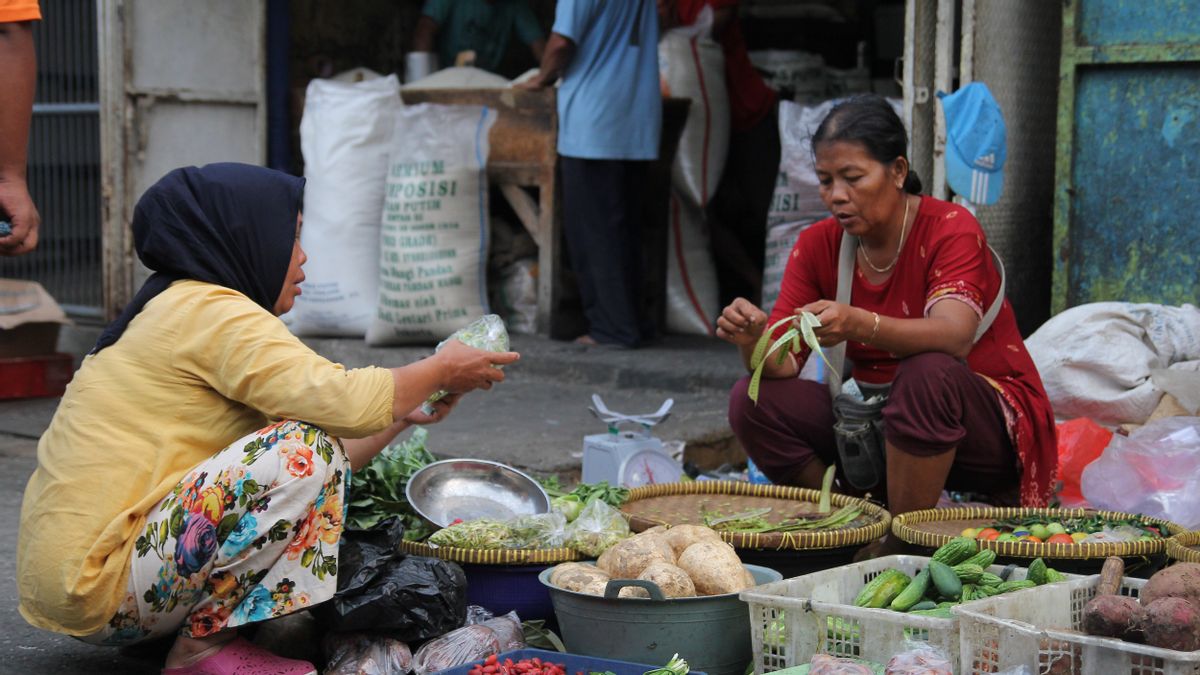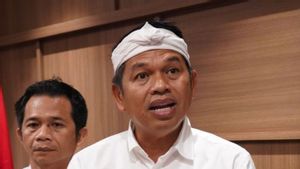JAKARTA - Indonesian President Joko Widodo (Jokowi) has asked his staff to socialize the new concept of normality to survive the COVID-19 situation. Because, it is undeniable that the economic sector has declined due to the increasingly massive spread of the virus.
In the concept of new normality, it means a change in behavior to continue carrying out normal activities so as to boost the economic sector. However, stick with health protocols to prevent transmission of COVID-19.
New normality rules have also been issued through the Decree of the Minister of Health (KMK) Number HK.01.07 / MENKES / 328/2020 concerning Guidelines for the Prevention and Control of Covid-19 in Office and Industrial Workplaces in Support of Business Continuity in Pandemic Situations.
Gajah Mada University sociologist, Sunyoto Usman, said that not all people in society can apply these rules. Especially for those who live by working as hard laborers or relying on muscles.
For example construction workers, they will find it very difficult to apply health rules such as always washing hands and maintaining distance. Because, in their work they often carry out activities that are prohibited by these regulations.
Then, the traditional traders. They are accustomed to communicating with buyers directly regardless of distance. So, implementing the health protocol is considered quite difficult.
"For some other residents, it is not easy to accept it, especially when their activities are felt subjectively not being disturbed by COVID-19 such as construction workers, motorbikes, traditional markets and so on," Usman told VOI, Wednesday, May 27.
However, different things will happen to those who already have high awareness. They will be easy to adapt. This is because the regulation is considered very helpful for smoothing their business activities.
So that, in order to avoid errors or ineffectiveness of these rules, said Usman, the government must prepare steps to overcome them. One of them is by providing education for those who do not understand the rules.
Sanctioning is not the right solution. This is because, reflecting on what has happened, the public seems not afraid of the sanctions given. So, it is very important to provide knowledge in order to increase awareness.
"Maybe we also need education and assistance by mobilizing local governments and entrepreneurs, as well as volunteers. Don't rush to impose sanctions, they are often ineffective. Need to provide knowledge and awareness," said Usman.
Needs close supervisionInstitute for Development of Economics and Finance (INDEF) researcher Bhima Yudhistira assessed that all new normality protocols must be accompanied by close supervision from the Health Office as the key to successful implementation. He even considered, the Health Office needs to carry out random checks to a number of checks to ensure this protocol is carried out by all companies without exception.
"It is important to carry out a random check or some kind of inspection so that sanctions or corrective measures are taken directly to the company owners to be orderly. There should be no discrimination, one is orderly but many other offices do not comply," Bhima told reporters, Tuesday, May 25.
He also said it was possible that some workplaces were unable to provide adequate health protocols. For example, providing hand sanitizers and masks.
So, at times like this, the government should provide assistance to MSME entrepreneurs to ensure the availability of masks. In addition, the government must also carry out the socialization of safe health protocols from now on.
"For medium and large companies, there may not be a problem, but for MSMEs there will definitely be additional costs," said Bhima.
The English, Chinese, Japanese, Arabic, and French versions are automatically generated by the AI. So there may still be inaccuracies in translating, please always see Indonesian as our main language. (system supported by DigitalSiber.id)













